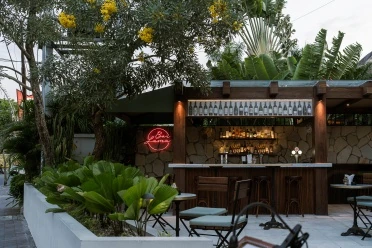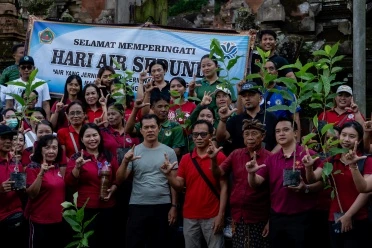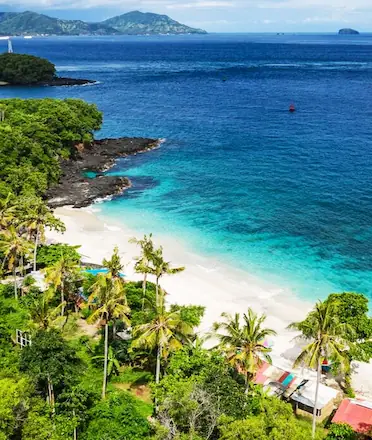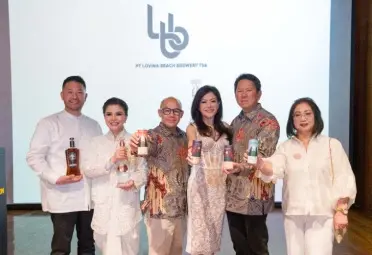Bali’s Jatiluwih Rice Terraces have once again captured the world’s attention, securing a spot in the Green Destinations Top 100 Stories 2025. The recognition, announced in Montpellier, France, reaffirms Jatiluwih’s status as a model for sustainable tourism and cultural preservation.
Representing not only Bali but all of Indonesia, Jatiluwih stood as the country’s sole entry among more than 600 destinations from 60 nations.
The award was received by John Ketut Purna, the Head of the Jatiluwih Tourism Management. This accolade adds to an already impressive list of honors, including UNESCO World Heritage Protection and recognition by the UN World Tourism Organization as one of the world’s best tourism villages.
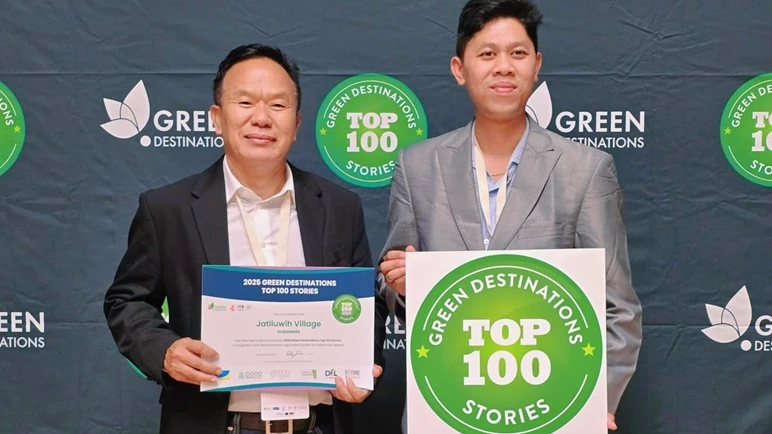
The Power of Regenerative Tourism
Unlike traditional models of sustainable travel, Jatiluwih champions regenerative tourism. The distinction lies in purpose: sustainability seeks to minimize harm, while regeneration aims to restore, enrich, and empower. Here, tourism is not just about preserving what already exists but about strengthening cultural identity, restoring ecosystems, and improving community welfare.
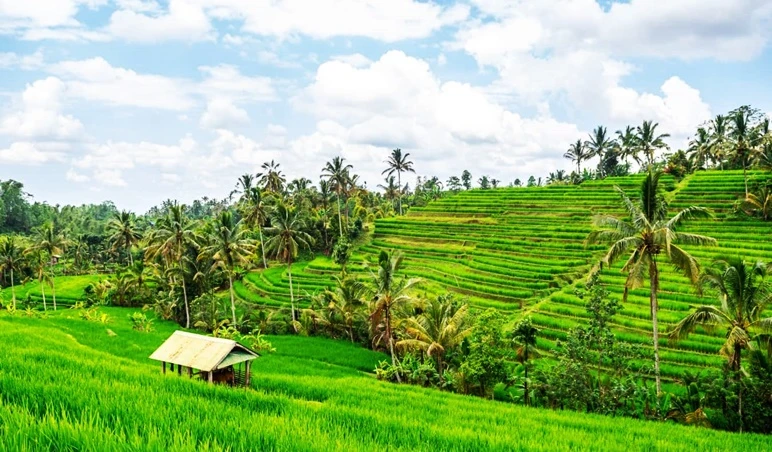
This approach has transformed Jatiluwih into a living classroom on how tourism, when managed with balance, can actively support both people and planet. Its rice terraces are more than picturesque landscapes; they are symbols of collaboration between humans and nature, where the rhythm of planting and harvest reflects a philosophy of harmony embedded in Balinese culture.
Guarding the Land from Overdevelopment
Bali’s tourism growth often sparks concern about overdevelopment and cultural erosion. Yet Jatiluwih stands apart, safeguarded by local regulations that prohibit new buildings from disrupting the rice field ecosystem. This foresight protects not only the landscape but also the authenticity that defines the village’s identity. In a province where rapid commercialization threatens the delicate relationship between heritage and economy, Jatiluwih’s model provides a blueprint for balance. The question now is whether other destinations across Bali will adopt similar measures, prioritizing cultural preservation over short-term gain.
Global Recognition, Local Impact
International recognition brings prestige, but it also raises expectations. Awards attract more visitors, and with that comes the challenge of maintaining authenticity amid rising tourism demand. For Jatiluwih, the path forward lies in managing growth without diluting the values that earned its acclaim.

The rice terraces’ management team continues to ensure tourism revenues directly benefit local communities, reinforcing education, cultural programs, and environmental restoration. By keeping decision-making local and transparent, Jatiluwih demonstrates that world-class recognition does not have to come at the cost of local control.
What the Future Holds
Jatiluwih’s story reflects a broader global shift in tourism values. Travelers are increasingly drawn to destinations that offer meaning, authenticity, and connection rather than superficial experiences. Jatiluwih answers that call with a philosophy rooted in harmony between humans, nature, and the divine—a principle that could guide the next era of global tourism.
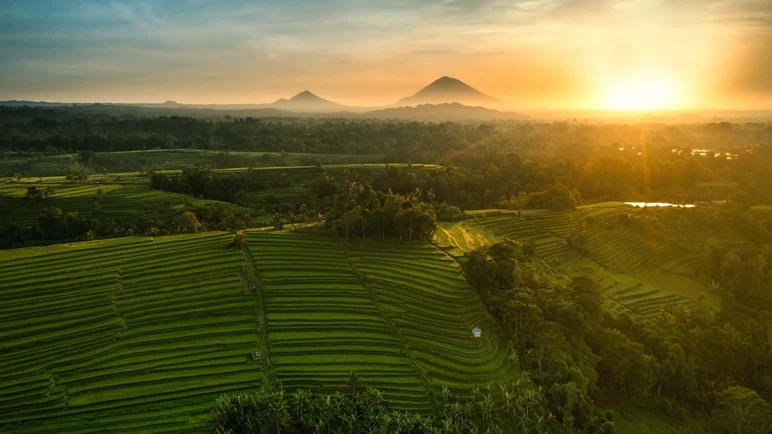
For visitors, the best way to experience Jatiluwih is not simply to look, but to engage. Sunrise walks across the terraced fields reveal a landscape that glows with both light and purpose. Guided tours offer insight into the rice-growing cycle and the enduring philosophy that sustains it. Beyond the beauty lies a living heritage—one that continues to evolve, protect, and inspire.



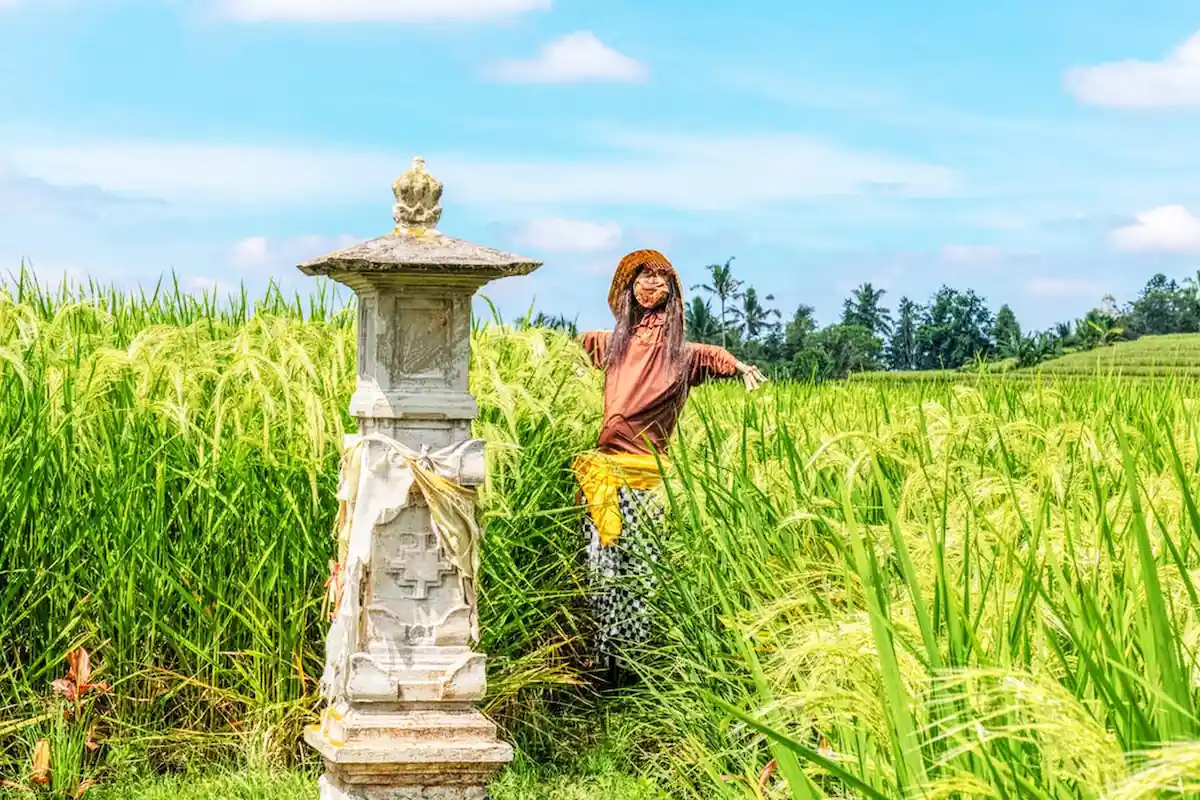
 Billy Bagus
Billy Bagus
 Oct 10, 2025
Oct 10, 2025
